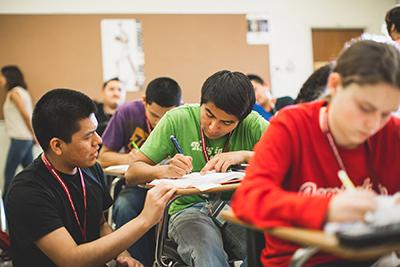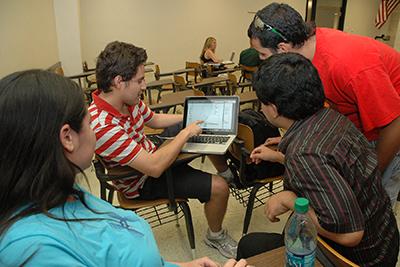
Solutions across disciplines
Our mission is to build and support research collaborations that connect the biological, mathematical, environmental, and social sciences. At the Mathematical, Computational and Modeling Sciences Center, we train the next generation of researchers to focus on solutions rather than academic disciplines.
Welcome
The Mathematical, Computational, and Modeling Sciences Center is home to two long-running summer programs: the Joaquin Bustoz Math-Science Honors Program for Arizona high school students and the Quantitative Research in the Life and Social Sciences Summer Research Experience for Undergraduates, serving undergraduates from across the nation.
The SIAM Student Chapter at ASU Wants You!
The Society for Industrial and Applied Mathematics (SIAM) Student Chapter at Arizona State University provides opportunities for students to share their research, learn new skills, and network with current and future mathematicians. Please visit the website to view upcoming events aimed at supporting mathematics scholars.

Joaquin Bustoz Math-Science Honors Program (JBMSHP)
The Joaquin Bustoz Math-Science Honors Program is an intense academic program that provides an outstanding opportunity for motivated students to begin university mathematics and science studies before graduating high school. The program is designed to provide a successful university experience for Arizona students from diverse backgrounds and to enhance their prospects for future academic success.

Quantitative Research in the Life and Social Sciences Program (QRLSSP)
The Quantitative Research in the Life and Social Sciences Program supports the development of students through educational, research, and mentorship activities from the undergraduate to the postdoctoral level. Programs include intensive summer research training programs, long-term support for alumni, continuous research opportunities for undergraduate, graduate, and postdoctoral scholars, and opportunities for national and international visitors.